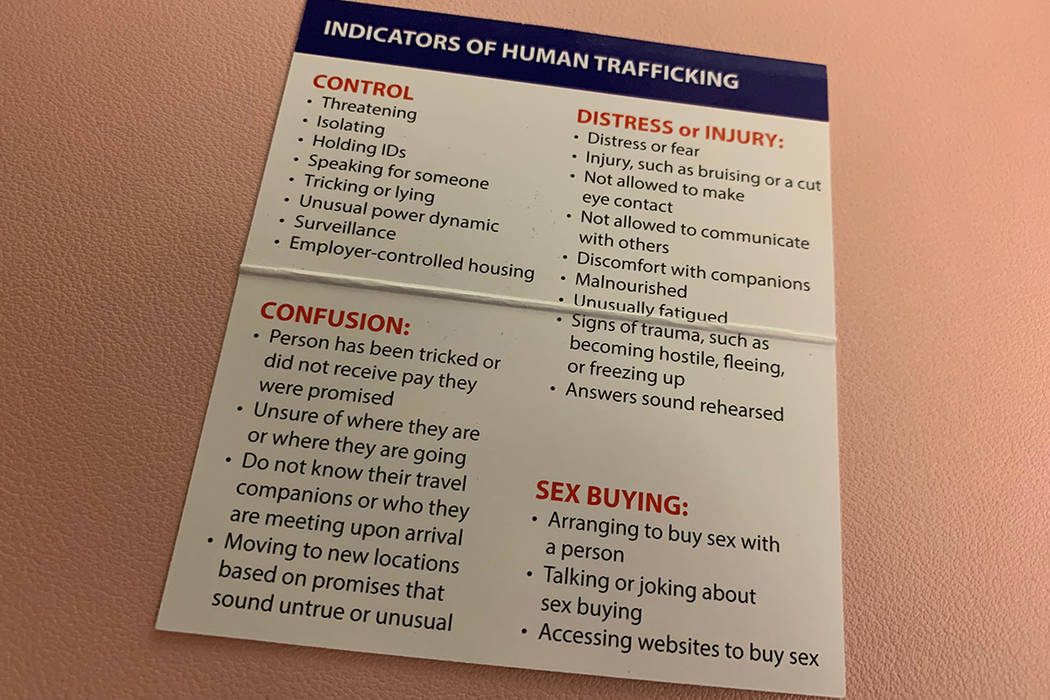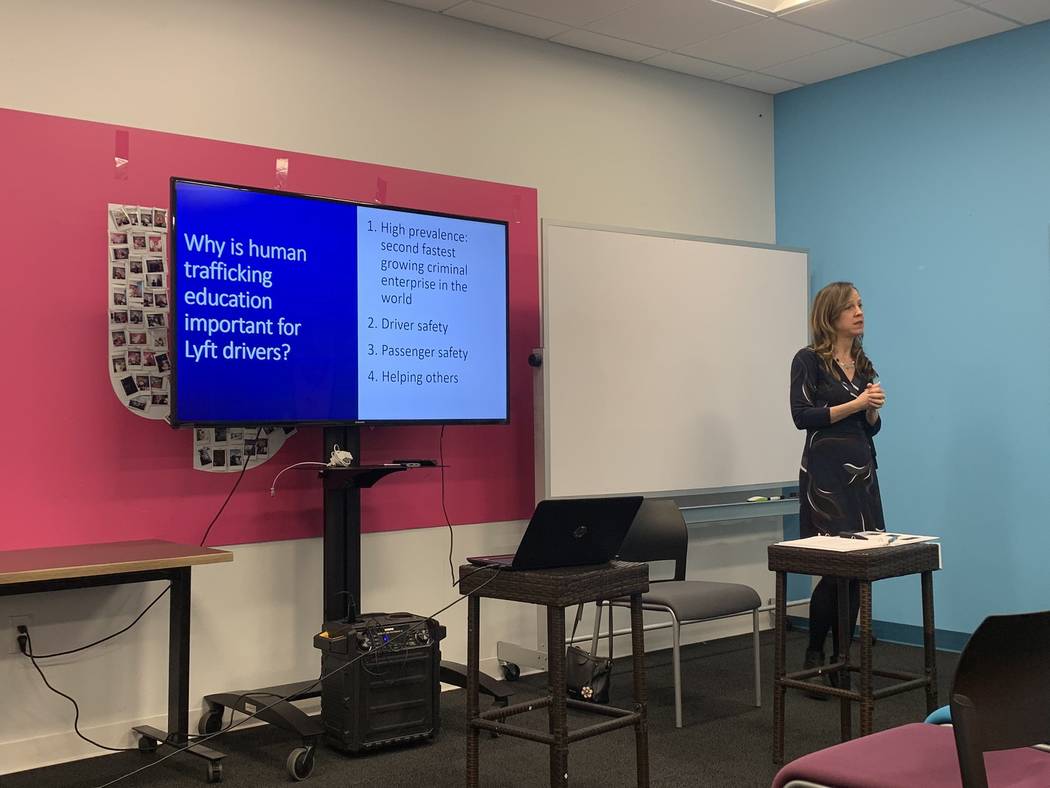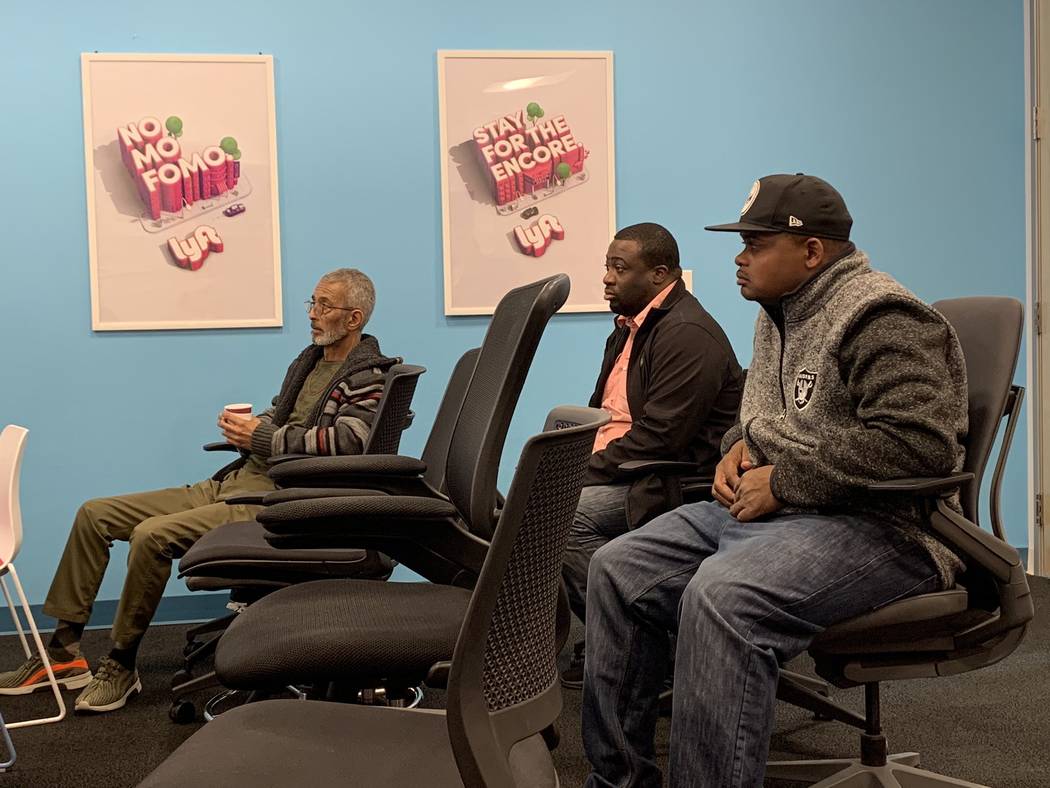Lyft sessions show drivers how to spot human trafficking signs
Lyft began offering training sessions Wednesday at its Las Vegas hub to help educate drivers on how to identify signs of human trafficking in their passengers.
The rideshare company has partnered with Businesses Ending Slavery and Trafficking to offer the training sessions in cities across the country. The sessions are funded by Dressember, a nonprofit organization aimed to raise awareness about human trafficking.
Mar Brettmann, CEO and executive director of BEST, came to Las Vegas from Seattle to lead the three training sessions. Each session lasted about an hour and included an explanation of human trafficking, videos with testimony from trafficking survivors and interactive discussions about past cases and how the drivers would have handled each situation.
According to BEST, there are more than 5,600 child sex trafficking victims in Nevada. In 2016, the organization said the average victim age was around 16.
Drivers were encouraged to look for four key signs of human trafficking when interacting with their riders: control, confusion, distress or injury and sex buying. They also were given stacks of information cards, listing the indicators of human trafficking and contact information for the National Human Trafficking Hotline, to keep in their car.
Louisa Choi, general manager of Lyft Nevada, said turnout at Wednesday’s training sessions was lower than she had hoped, but she plans to start a local driver advisory council of a handful of influential drivers who can help keep other drivers informed about these events and pass along information to drivers unable to attend.
“As a community partner, we definitely want to play our part to ensure that our drivers have the resources to really understand the signs and how to respond appropriately,” Choi said. “Today we saw a lot of them who may have encountered these situations and didn’t know what to do, so partnering with BEST is something we wanted to do to educate our drivers better.”
Three drivers participated in a morning session on Wednesday: Joseph Rightious, who has been a Lyft driver for three years, and Oneil Cassells and Herman Stephens, who have each been Lyft drivers for two years. By the end of the training, all three had shared stories of past experiences that they now realized likely involved trafficking victims.
Cassells recalled a time in which he was asked to pick up a man from a woman’s apartment and take him to the airport. He said that when he arrived he noticed the man did not have any bags, and he was attempting to take the woman’s phone with him when he left.
He said he explained that he would not leave while the two were fighting and that he would have to cancel the ride if the situation wasn’t resolved.
“And so finally she snatched the phone from him and ran, and he was going to go after her and I was like, “Yo, do you need the ride or not?” and he got in, closed the door and apologized,” Cassells said. “I took him to the airport and that was the end of it.”
Brettmann said the incident absolutely sounded like a trafficking situation, and Cassells said if he were in that position again he would call law enforcement and go back to the woman’s apartment to leave one of the hotline cards on her door.
Cassells said the training left him feeling better equipped to help people, and he hopes others are able to take part in similar sessions.
“I think the more that we become aware of these issues and have the tools to combat them, the more empowered we feel as a community and the safer it makes our community,” Cassells said. “I feel like this training should be done not just for the drivers, but for the whole community.”
Contact Alexis Egeland at aegeland@reviewjournal.com or 702-383-0335. Follow @alexis_egeland on Twitter.
If you see signs of trafficking or if you are a victim, call the National Human Trafficking Hotline at 1-888-373-7888 or text 233733 (BEFREE).

























